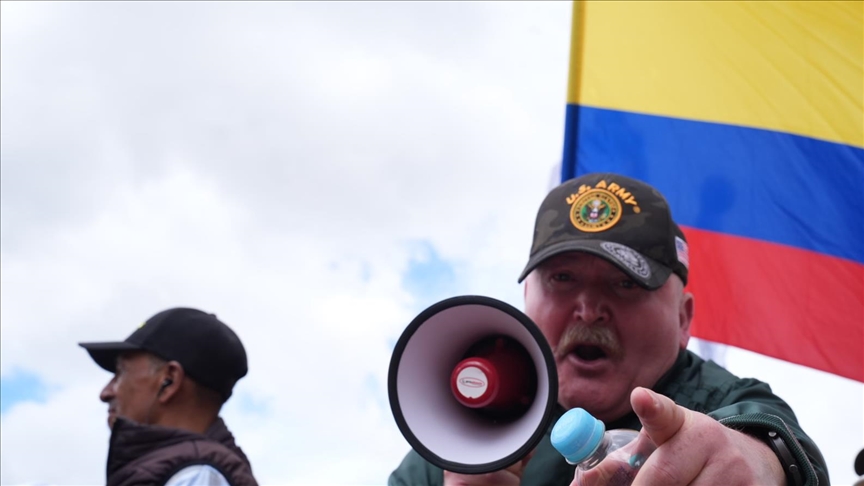Colombia gripped by 48-hour strike for government´s reforms
Protest seeks to compel lawmakers to approve referendum on social, health care changes
 FILE PHOTO
FILE PHOTO
BOGOTA, Colombia
Colombia's streets are bracing for a 48-hour national strike that began Wednesday as major labor unions mobilize to pressure Congress into approving President Gustavo Petro's ambitious social reform agenda.
The protests, called by the Central Unitaria de Trabajadores (CUT), the nation's largest labor federation, aim to compel lawmakers to greenlight a referendum on critical labor and health care reforms.
The widespread call to protest follows a significant legislative setback for Petro earlier this month. The Senate rejected a 12-question referendum that would have allowed citizens to directly vote on major policy changes. In response, Petro quickly submitted a revised proposal featuring 16 questions, including four specifically addressing health care.
The initial failure marks one of the most substantial defeats for Petro's leftist presidency since he took office in August 2022.
While the Constitution allows citizen referendums, the mechanisms require congressional approval. Petro has publicly accused lawmakers of "subverting democratic processes" by refusing to let the public have its say.
Congress, however, argues that spending millions on a referendum is unnecessary, given that a labor reform bill, incorporating several government-proposed points, is already under legislative discussion.
Despite Petro's claims that the strike was not directly promoted by his administration, he has repeatedly cautioned about national unrest if Congress fails to pass his reform agenda.
"If we have to go on an indefinite strike, the president will stand with the people," Petro said May 20. "And if they remove me for doing so, a revolution will erupt in Colombia."
Interior Minister Armando Benedetti confirmed the government's support for civil society demonstrations demanding a binding referendum and advocating the president's proposed reforms.
The effects of the strike are already being felt. Several public schools have suspended classes, and public employees are not attending work. In various parts of Colombia, violence has erupted due to blockades.
In Bogota, masked individuals have been obstructing segments of the transportation system, leading to clashes with commuters trying to reach workplaces.
At a Cabinet meeting Tuesday, Petro addressed the unfolding situation, asserting that "the duty of those who protest is to refrain from violence," even as reports of unrest continue to emerge.
Anadolu Agency website contains only a portion of the news stories offered to subscribers in the AA News Broadcasting System (HAS), and in summarized form. Please contact us for subscription options.







